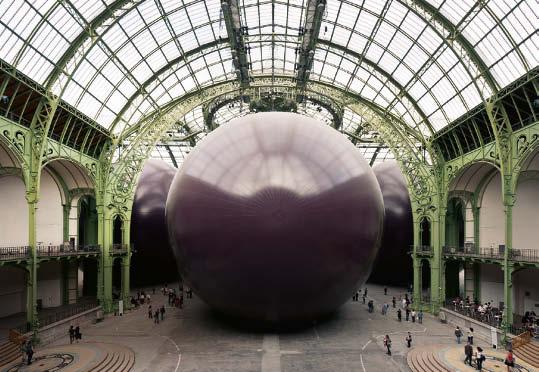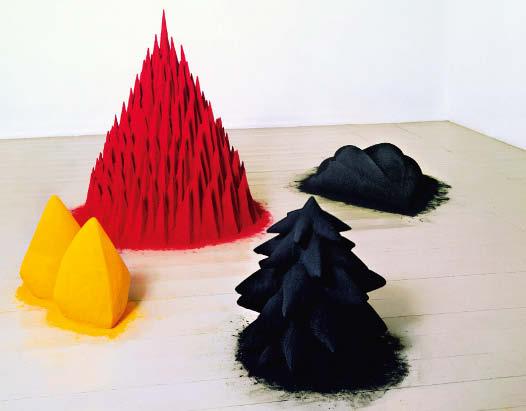




AA triad of brightly-coloured concave discs, reminiscent of hairdryers in old-fashioned salons, disappear into the wall at the Lisson Gallery in London. Large enough for an adult to curl up
shells. This grand-scale-meets-fragility is something that Anish Kapoor, 58, has spent his pro-
niversary, as well as a departure. The Mumbaiborn, London-based artist’s show announces a with materials mud, cement and metallic pigment. It is also a celebration of the 30 years that Kapoor as an artist—ever
Nicholas Logsdail, who founded Lisson in the recalls seeing
time at the artist’s graduation show at the Chelsea College of Art. . In it, I recognised a convergence of modernism with a timelessness coming from his Indian origins,” says Logsdail, referring to a sculpture made of saturated bright powder,
Kapoor tells Vogue “
art to new places,” he says of the show, which divide from what has been his most controversial piece to date: the ArcelorMittal Orbit. The Olympics may be over, but the tallest tower in Britain has gently slipped into the legacy for which it was created. This show, then, lifts the curtains off a new stage.
The exhibition is on till November 10 at Lisson Gallery, London; Lissongallery.com
A quick look at two iconic works in the artist’s much-dissected career
“This exhibition is experimental and I hope it takes my art to new places”
ANISH KAPOOR

Leviathan (2011), displayed at the Grand Palais in Paris, reiterates Kapoor’s love for the monumental








One of Kapoor’s first works, White Sand, Red Millet, Many Flowers (1982) points to his Indian influences


